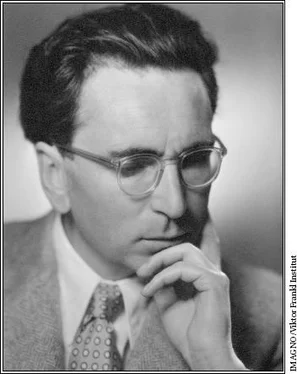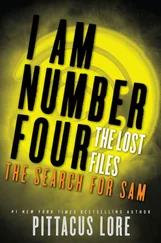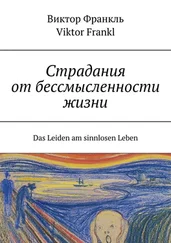And I smiled. I am now convinced that anyone in my place on that day would have done the same.
I think it was Lessing who once said, “There are things which must cause you to lose your reason or you have none to lose.” An abnormal reaction to an abnormal situation is normal behavior. Even we psychiatrists expect the reactions of a man to an abnormal situation, such as being committed to an asylum, to be abnormal in proportion to the degree of his normality. The reaction of a man to his admission to a concentration camp also represents an abnormal state of mind, but judged objectively it is a normal and, as will be shown later, typical reaction to the given circumstances. These reactions, as I have described them, began to change in a few days. The prisoner passed from the first to the second phase; the phase of relative apathy, in which he achieved a kind of emotional death.
Apart from the already described reactions, the newly arrived prisoner experienced the tortures of other most painful emotions, all of which he tried to deaden. First of all, there was his boundless longing for his home and his family. This often could become so acute that he felt himself consumed by longing. Then there was disgust; disgust with all the ugliness which surrounded him, even in its mere external forms.
Most of the prisoners were given a uniform of rags which would have made a scarecrow elegant by comparison. Between the huts in the camp lay pure filth, and the more one worked to clear it away, the more one had to come in contact with it. It was a favorite practice to detail a new arrival to a work group whose job was to clean the latrines and remove the sewage. If, as usually happened, some of the excrement splashed into his face during its transport over bumpy fields, any sign of disgust by the prisoner or any attempt to wipe off the filth would only be punished with a blow from a Capo. And thus the mortification of normal reactions was hastened.
At first the prisoner looked away if he saw the punishment parades of another group; he could not bear to see fellow prisoners march up and down for hours in the mire, their movements directed by blows. Days or weeks later things changed. Early in the morning, when it was still dark, the prisoner stood in front of the gate with his detachment, ready to march. He heard a scream and saw how a comrade was knocked down, pulled to his feet again, and knocked down once more—and why? He was feverish but had reported to sick-bay at an improper time. He was being punished for this irregular attempt to be relieved of his duties.
But the prisoner who had passed into the second stage of his psychological reactions did not avert his eyes any more. By then his feelings were blunted, and he watched unmoved. Another example: he found himself waiting at sick-bay, hoping to be granted two days of light work inside the camp because of injuries or perhaps edema or fever. He stood unmoved while a twelve-year-old boy was carried in who had been forced to stand at attention for hours in the snow or to work outside with bare feet because there were no shoes for him in the camp. His toes had become frostbitten, and the doctor on duty picked off the black gangrenous stumps with tweezers, one by one. Disgust, horror and pity are emotions that our spectator could not really feel any more. The sufferers, the dying and the dead, became such commonplace sights to him after a few weeks of camp life that they could not move him any more.
I spent some time in a hut for typhus patients who ran very high temperatures and were often delirious, many of them moribund. After one of them had just died, I watched without any emotional upset the scene that followed, which was repeated over and over again with each death. One by one the prisoners approached the still warm body. One grabbed the remains of a messy meal of potatoes; another decided that the corpse’s wooden shoes were an improvement on his own, and exchanged them. A third man did the same with the dead man’s coat, and another was glad to be able to secure some—just imagine!—genuine string.
All this I watched with unconcern. Eventually I asked the “nurse” to remove the body. When he decided to do so, he took the corpse by its legs, allowing it to drop into the small corridor between the two rows of boards which were the beds for the fifty typhus patients, and dragged it across the bumpy earthen floor toward the door. The two steps which led up into the open air always constituted a problem for us, since we were exhausted from a chronic lack of food. After a few months’ stay in the camp we could not walk up those steps, which were each about six inches high, without putting our hands on the door jambs to pull ourselves up.
The man with the corpse approached the steps. Wearily he dragged himself up. Then the body: first the feet, then the trunk, and finally—with an uncanny rattling noise—the head of the corpse bumped up the two steps.
My place was on the opposite side of the hut, next to the small, sole window, which was built near the floor. While my cold hands clasped a bowl of hot soup from which I sipped greedily, I happened to look out the window. The corpse which had just been removed stared in at me with glazed eyes. Two hours before I had spoken to that man. Now I continued sipping my soup.
If my lack of emotion had not surprised me from the standpoint of professional interest, I would not remember this incident now, because there was so little feeling involved in it.
Apathy, the blunting of the emotions and the feeling that one could not care any more, were the symptoms arising during the second stage of the prisoner’s psychological reac- tions, and which eventually made him insensitive to daily and hourly beatings. By means of this insensibility the prisoner soon surrounded himself with a very necessary protective shell.
Beatings occurred on the slightest provocation, sometimes for no reason at all. For example, bread was rationed out at our work site and we had to line up for it. Once, the man behind me stood off a little to one side and that lack of symmetry displeased the SS guard. I did not know what was going on in the line behind me, nor in the mind of the SS guard, but suddenly I received two sharp blows on my head. Only then did I spot the guard at my side who was using his stick. At such a moment it is not the physical pain which hurts the most (and this applies to adults as much as to punished children); it is the mental agony caused by the injustice, the unreasonableness of it all.
Strangely enough, a blow which does not even find its mark can, under certain circumstances, hurt more than one that finds its mark. Once I was standing on a railway track in a snowstorm. In spite of the weather our party had to keep on working. I worked quite hard at mending the track with gravel, since that was the only way to keep warm. For only one moment I paused to get my breath and to lean on my shovel. Unfortunately the guard turned around just then and thought I was loafing. The pain he caused me was not from any insults or any blows. That guard did not think it worth his while to say anything, not even a swear word, to the ragged, emaciated figure standing before him, which probably reminded him only vaguely of a human form. Instead, he playfully picked up a stone and threw it at me. That, to me, seemed the way to attract the attention of a beast, to call a domestic animal back to its job, a creature with which you have so little in common that you do not even punish it.
The most painful part of beatings is the insult which they imply. At one time we had to carry some long, heavy girders over icy tracks. If one man slipped, he endangered not only himself but all the others who carried the same girder. An old friend of mine had a congenitally dislocated hip. He was glad to be capable of working in spite of it, since the physically disabled were almost certainly sent to death when a selection took place. He limped over the track with an especially heavy girder, and seemed about to fall and drag the others with him. As yet, I was not carrying a girder so I jumped to his assistance without stopping to think. I was immediately hit on the back, rudely reprimanded and ordered to return to my place. A few minutes previously the same guard who struck me had told us deprecatingly that we “pigs” lacked the spirit of comradeship.
Читать дальше












